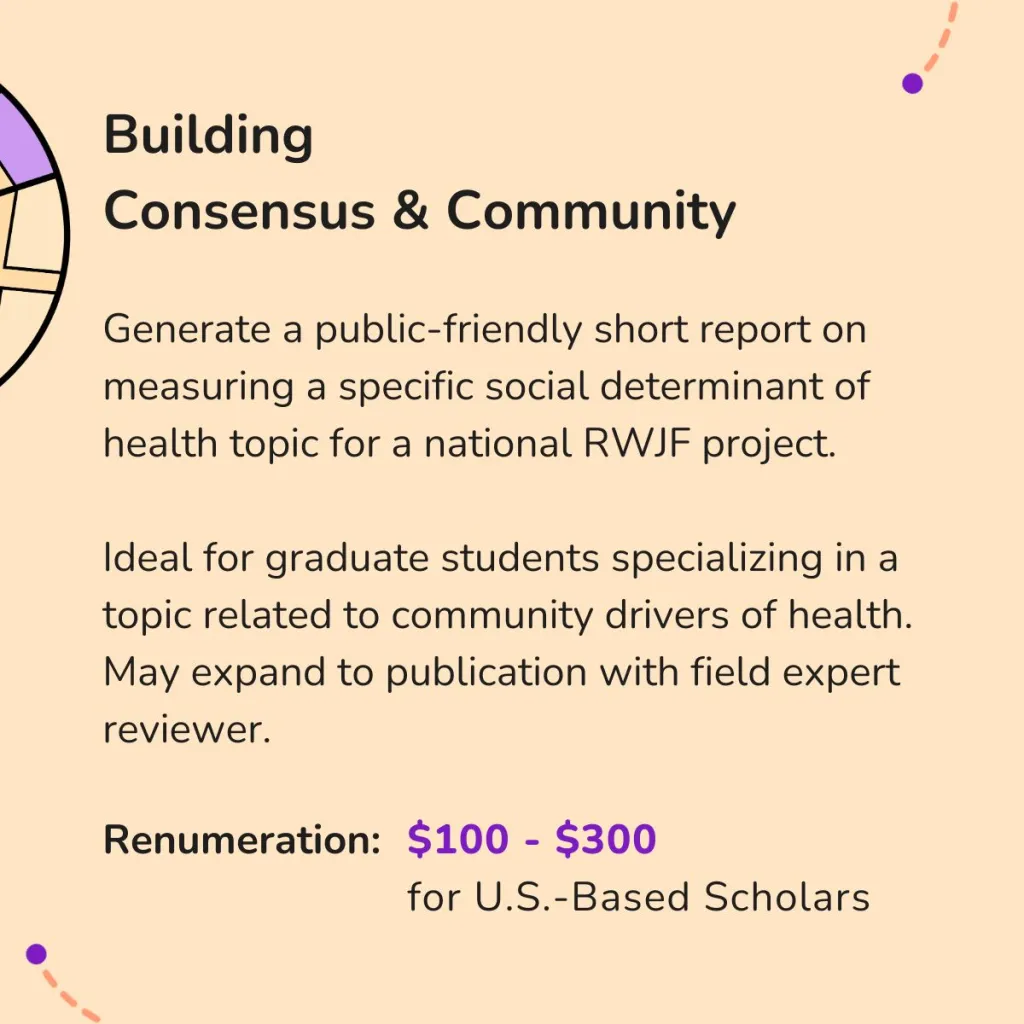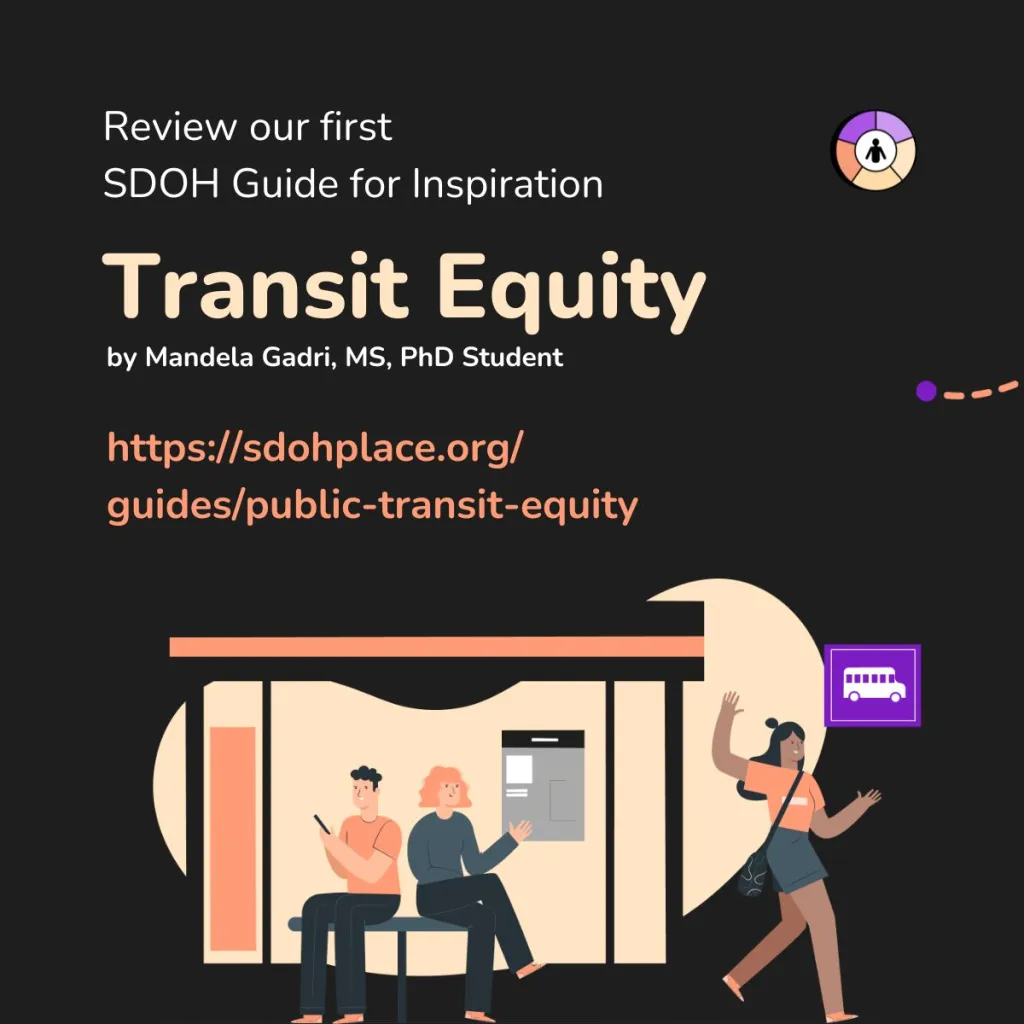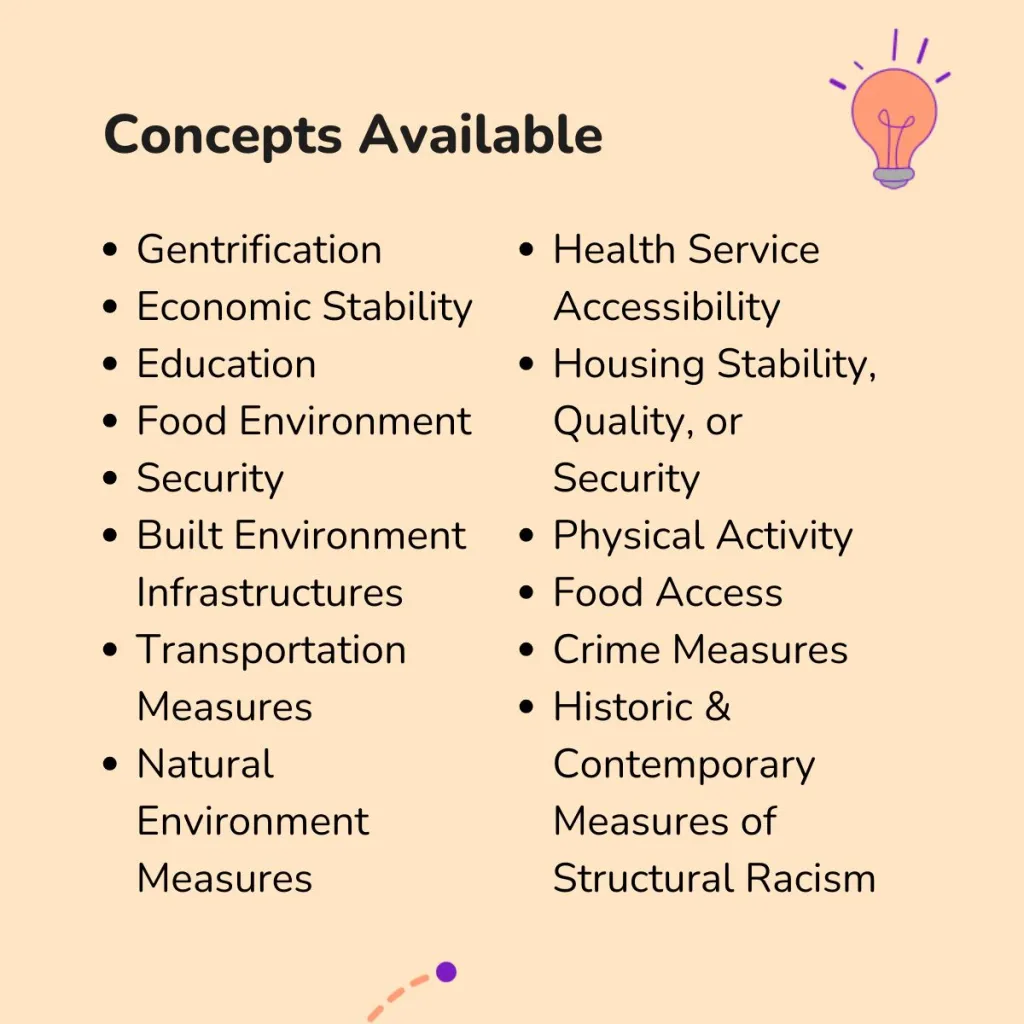


Call for SDOH Measurement "Research Guide" Reports
- Generate a public-friendly short report on the measurement of a specific social determinant of health topic for a national RWJF project: SDOH & Place.
- Potential to expand your report with an expert in your field to a manuscript, leveraging access to a network of scholars studying Community-Level SDOH
- U.S.-based scholars & residents participating in writing and/or reviewing Research Guides are eligible for compensation for their time ($100-$300).

Research Guide Specifications
Research guides focus on a distinct measure of a social determinant of health / structural driver of health. For example, transit equity, greenspace, or gentrification may be topics of interest that are associated with health outcomes in complex ways. Before researchers can analyze and interrogate those pathways, the constructs themselves must be identified as distinct measures. Research guides provide an overview of goals, motivations, and best practices of measurement for the indicator of interest.
We are seeking SDOH & Place Research Guide topic proposals and paid final contributions for guide composition. The guides for a specific measure of interest should be:
- A distinct indicator viewed as a SDOH and/or structural driver of health, that has a known association, impact, and/or relationship with health outcomes.
- Focused on community-level measures, rather than individual, to address the contextual aspects of SDOH. How might the measure be estimated at tract, zip code, or county levels?
- Grouped within one primary sub-category: demographics, economic stability, employment, education, food environment, health and healthcare, housing, neighborhood and built environment, physical activity and lifestyle, safety, social and community context, and transportation and infrastructure
- Literature review-driven summary of best practices for measurement of indicator
- Presented as a table of commonly used measures to represent indicator with varying levels of complexity (i.e. census proxy versus geocomputationally derived estimate or survey-driven response)
- Written in a style appropriate for a multi- or trans-disciplinary audience, explaining jargon thoughtfully and in plain language
- Offering a curated list of resources and evidence-based literature related to topic

Application
Composing a research guide may be an excellent opportunity for geography, social sciences, urban planning, and/or public health graduate students mastering a specific topic of interest, as well as researchers or advocates specializing in a topic crucial to SDOH research. We are also seeking reviewers of research guides to enhance and validate content as masters in their field; reviewers may be proposed by research guide authors, and/or may submit interest for a topic separately. Authors and reviewer teams will be encouraged to collaborate on updates together, and expand as a full manuscript for submission to a peer-reviewed journal.
Authors of accepted SDOH Research Guides will receive a $300* flat-rate fee for their guide; Reviewers will receive a $100* remuneration.
*Remuneration & Fee Eligibility: At this time, we are only able to provide remuneration & fees for U.S. based scholars. See a complete list of eligibility details here. If you are an international scholar that is interested in participating and donating your time, please indicate in the application.
Application Procedure: To apply, please review the following:
- Identify your topic of interest in accordance with guidelines above, and ensure it is available. You can also propose or refine specific calls for indicators like food access or gentrification.
- For Authors: Prepare a ~250 word abstract of your indicator of interest.
- For Reviewers: Prepare a ~250 word summary of your expertise for a specific SDOH topic.
- Submit your application (including topic, abstract, curriculum vitae, and related details) using this form (or click the button below).
- If invited to submit a full SDOH Research Guide, your deadline for completion will be March 15, 2026. The flat-rate fees and remunerations will be disbursed upon completion of work.
Submit your application here: https://go.illinois.edu/SDOH-GUIDES-APPLY
Application decisions will be communicated on a rolling basis. If you have any questions or have not heard back within 2 weeks, please reach out to Research Guide Lead, Catherine Discenza (cd43@illinois.edu), and/or our Research Coordinator, Marc Astacio-Palmer (mastacio@illinois.edu). Be sure to check the list of accepted topics before submitting.

Please reach out to the team with any questions you may have via the SDOH & Place Contact Form, and/or directly messaging Research Coordinator Marc Astacio-Palmer (mastacio@illinois.edu).









